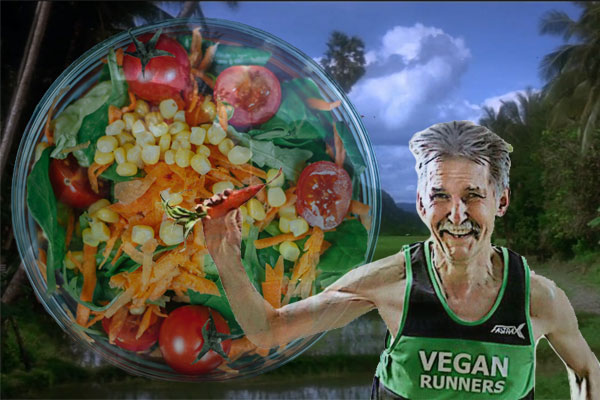Nutrition as a Vegan Runner – Maybe you want to train for a marathon. Perhaps you want to get more out of every mile. Either way, you’ve decided to improve your diet by giving veganism a try. Good for you! The lifestyle offers numerous benefits to your health and the planet.
How to Get Proper Nutrition as a Vegan Runner
As healthy as a vegan diet is, you must ensure you get the proper nutrition. Eliminating meat without eating the right foods will leave you weak and sluggish — not the optimal conditions for an intense workout.
Follow the tips below to get what you need and fuel your performance.
Nutrients That Vegans Need More Of
Because you don’t eat animal products, it may be challenging to achieve adequate levels of nutrients typically found in those foods, such as the examples below.
Vitamin B12
Vitamin B12 is in meat and dairy products, and there are no pure plant-based alternatives. However, if you can tolerate the fact that farmers fertilize tea leaves with fish meal, you can sip on a hot cuppa. Batabata-cha tea, a fermented Japanese variety, contains between 0.1 and 1.2 micrograms of B12 per 100 grams of dry leaves. You can also find vitamin B12 in mushrooms and edible algae.
Deficiencies in B12 create symptoms such as weakness and fatigue. You could experience numbness in your extremities and difficulties with coordination. In extreme cases, you may have mood and visual changes.
Protein
People often ask vegans, “How do you get enough protein?” However, many people who adopt a vegan lifestyle find it easy to locate plant-based sources. Some people practice a ketogenic diet, which promotes foods with high fats and low carbohydrates. This type of eating forces the body to burn fat.
To get enough protein, consider plant-based sources like:
• Beans: A vegan staple that mixes well with a variety of cuisines.
• Tempeh: Similar to fermented tofu, plus it packs a probiotic punch.
• Tofu: This food made with soybeans graces many vegan tables.
• Lentils: Protein powerhouse legumes that taste amazing in Asian dishes.
• Nut and seeds: These snacks are chock-full of protein and heart-healthy oils.
Iron
Red meat is a significant source of iron. When you transition to a vegan lifestyle, you need to find an alternative. Fortunately, you can find high levels of this nutrient in dark, leafy greens, such as Swiss chard and kale.
Remember how Popeye stayed strong because he ate his spinach? Enjoy an arugula salad with slivered almonds to get a healthy dose of iron.
Calcium
Many Americans get their calcium from dairy products, but you don’t have to. Broccoli is one of the best plant-based sources of this vital nutrient. One serving contains 180 milligrams of calcium — more than you’ll find in a same-sized portion of cottage cheese. Dark, leafy greens also contain high levels of the mineral.
Iodine
Because vegans don’t consume seafood, they can become deficient in iodine. Your thyroid gland needs this mineral to manufacture hormones. If you don’t consume adequate levels, you could experience fatigue and weakness from basic tasks. Imagine trying to go for a run or jog?
If you’re deficient in iodine, you might gain weight, even if you don’t consume an excessive amount of calories.
Should You Take a Supplement?
Some vegans prefer to use supplements to ensure they get all the nutrition they need. Experts disagree on whether you need to take one. Some argue all who follow the lifestyle should add specific vitamins, while others say they feel fine without them.
If you decide to take a supplement, choose one that contains most, if not all, of the nutrients listed above. It does little good to correct an iodine deficiency if you remain low on iron. If you have trouble absorbing nutrients, such as B12 or calcium, your doctor can prescribe an injectable form.
When using over-the-counter supplements, seek out quality brands. Many store-bought mixes contain lots of fillers, lacking in vitamins and minerals. Look for products labeled as NSF Contents Certified by U.S. Pharmacopeia (USP). This nonprofit sets the most widely recognized standards for supplements.
Getting Proper Nutrition as a Vegan Runner
The good news is, a vegan diet done right can actually benefit your overall running program. As long as you make sure to get enough of the nutrients above, this lifestyle can supercharge your performance!
article source: Kate Harveston




























[…] artikkeli Kate Harveston Suomentanut ja editoinut Piia […]